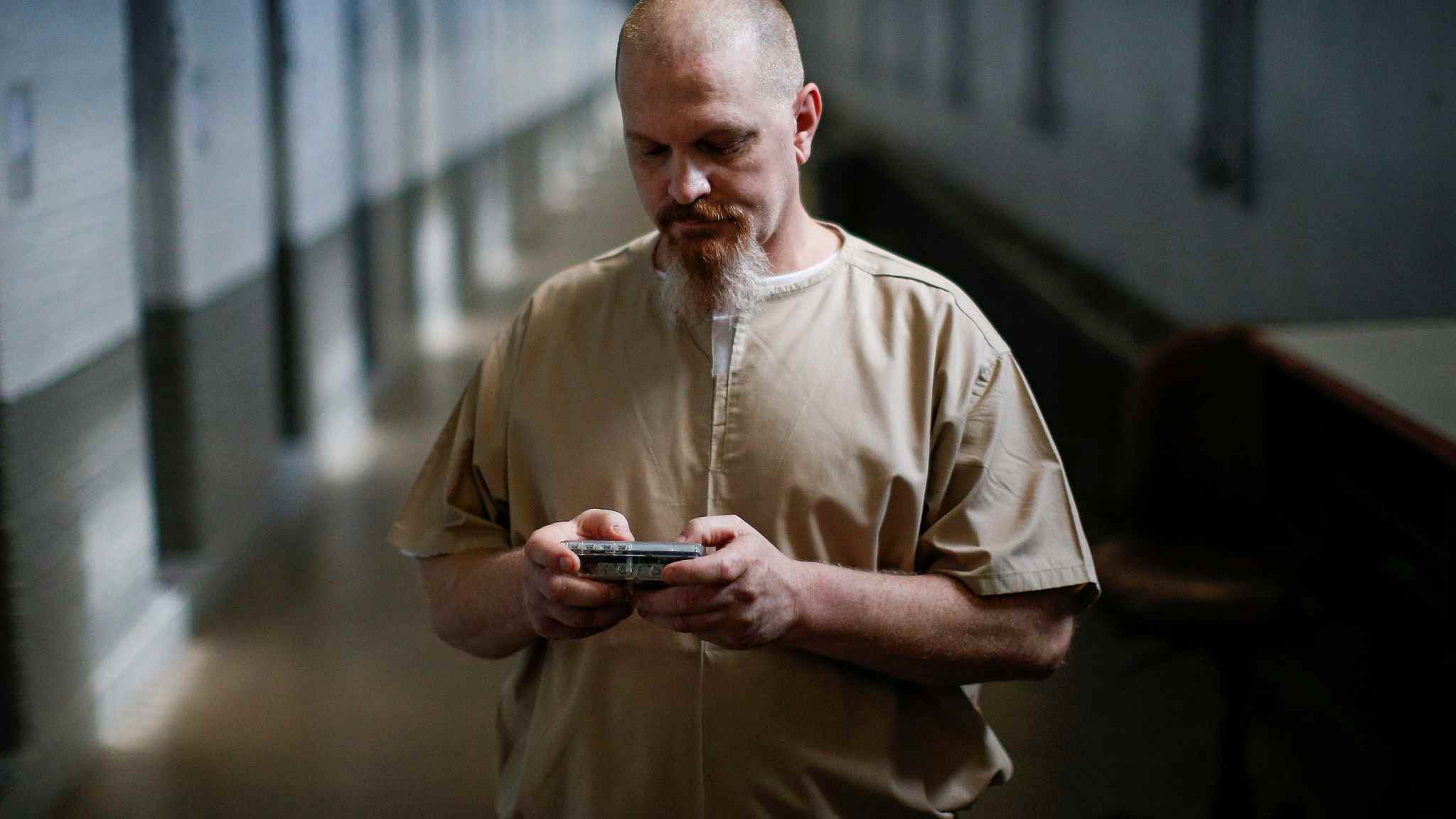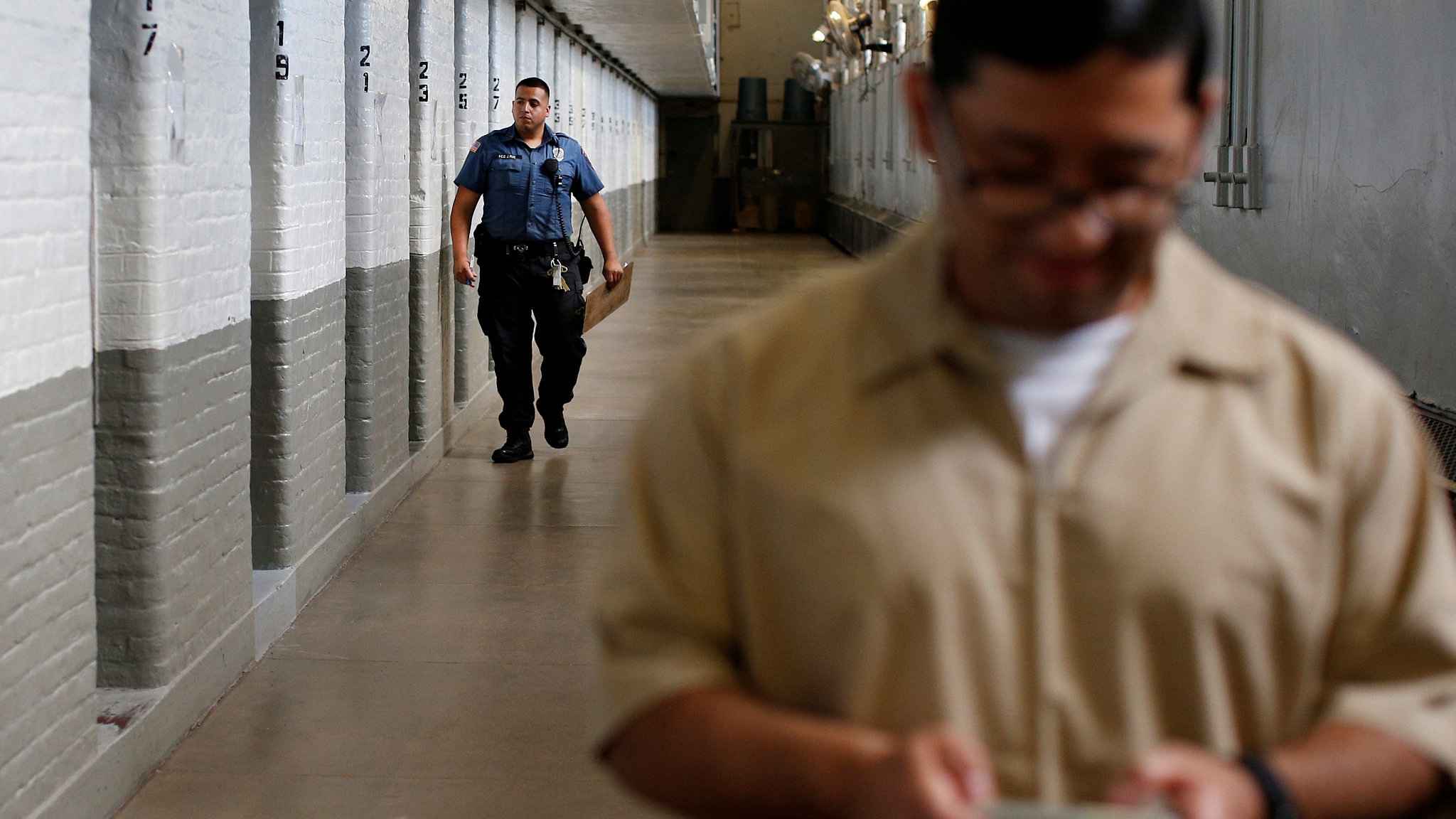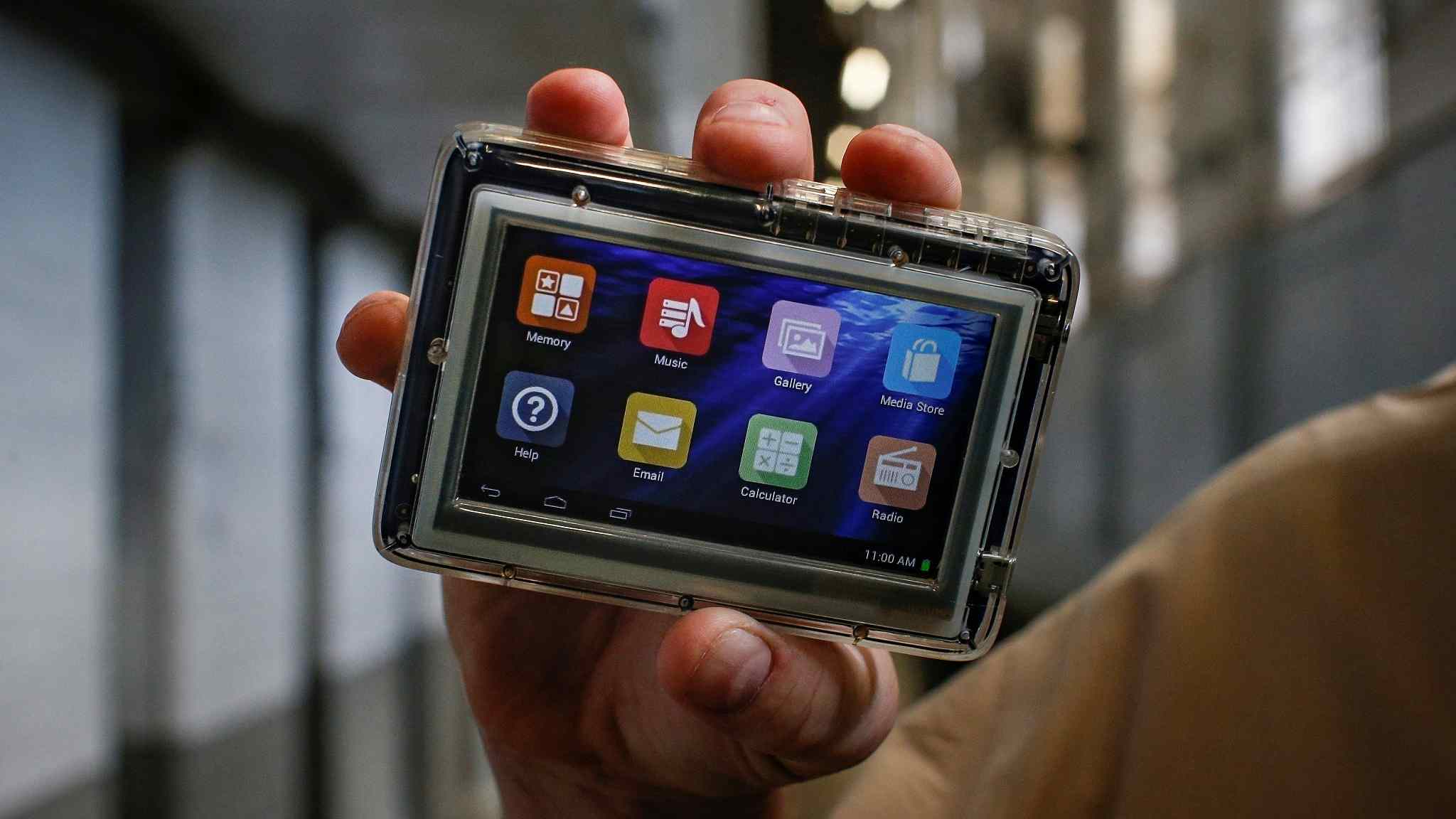
Tech & Sci
12:32, 25-Jul-2018
For latest in orderliness, prisons look to computer tablets
Updated
11:51, 28-Jul-2018
CGTN

Allowing inmates to stare at computer tablet screens for hours each day may be just the ticket for creating calm, orderly cellblocks, prison officials say.
But tablets, growing in popularity in prisons nationwide, also can help inmates advance their education, connect with family and prepare them for life in the technology-saturated outside world, officials say.
In Connecticut, which plans to introduce tablets in its prisons this summer, Correction Commissioner Scott Semple said: “Just like when you walk in the mall, everyone is looking down at their phone.”

Inmate Ignacio Rodriguez uses his JPay tablet device inside the East Jersey State Prison in Rahway, New Jersey, US. /VCG Photo
Inmate Ignacio Rodriguez uses his JPay tablet device inside the East Jersey State Prison in Rahway, New Jersey, US. /VCG Photo
The devices, which are transparent so contraband can’t be hidden in them, won’t be hooked to the internet, but to an internal system. They will be preloaded with educational materials, including books, educational videos, and games.
Inmates will also be able to use them – for a price – to send emails and make monitored phone calls to those on their approved communications lists. They will also be able to buy music, video games, and other items to load onto the machines from kiosks in the prisons.
“We’re trying to increase engagement opportunities for a population because sometimes there is downtime in prisons,” Semple said. “We’re also trying to keep them exposed to technology because we hear from people that when they go back into society, the technology is so different that they struggle.”
Tablet programs face criticism
Questions have been raised about whether the tablets could lead prisons to decrease in-person visitation and whether there is enough regulation of private providers to prevent price gouging.
“If we believe that people in prison would benefit from resources that enrich their lives and allow them to contact their loved ones more, we shouldn’t make those benefits contingent on who can pay, especially since we’re talking about people who are disproportionately very poor,” said Wanda Bertram, with the Prison Policy Initiative, a think tank.

Inmate Steven Goff shows his JPay tablet device inside the East Jersey State Prison in Rahway, New Jersey, US. /VCG Photo
Inmate Steven Goff shows his JPay tablet device inside the East Jersey State Prison in Rahway, New Jersey, US. /VCG Photo
And Connecticut state Sen. John Kissel, R-Enfield, a co-chair of the Judiciary Committee, said he doesn’t understand why the state would give priority to criminals over, say, public school students.
“These folks have committed really bad crimes that have consequences and victims,” he said. “It bothers me as to what message we’re sending.”
The Colorado Department of Corrections said it has had to deal with security issues, such as improper sharing of devices and inmates removing a metal strip from an early model to make weapons, said spokesman Mark Fairbairn.
Making a positive impact
Pennsylvania introduced tablets in 2016. Inmates can buy them for just under 150 US dollars from a provider. About 16,000, or a third of the state’s inmate population, have done so.
The Pennsylvania corrections department is still collecting data on violence or other conflicts, said Shirley Moore Smeal, the department’s executive deputy secretary. But prison superintendents tell them the impact has been positive, she said.
“It does lead to a better environment for the population,” she said. “It gives them something to look forward to. It’s something that’s constructive for them, and that means it’s constructive for the institution itself.”
The state, she said, is also looking into providing some tablets that can be loaned to prisoners who cannot afford them.
Source(s): AP

SITEMAP
Copyright © 2018 CGTN. Beijing ICP prepared NO.16065310-3
Copyright © 2018 CGTN. Beijing ICP prepared NO.16065310-3